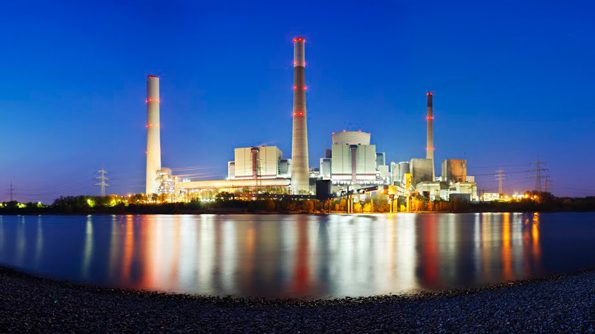3 min read • Energy, Utilities & Resources
Does the government have the political will to change direction on UK energy policy? asks Arthur D. Little
<p>The UK government’s first annual energy statement recently acknowledged the ongoing need to realign UK energy policy in order to implement an environmentally responsible, secure and cost-efficient energy infrastructure. Global management consultancy Arthur D. Little believes that the inconsistent policies so far pursued seem destined to deliver a high cost, low quality infrastructure – and asks whether the current government is willing to turn this situation around.</p>
Central to the government’s target of reducing greenhouse gas emissions by 34 per cent below their 1990 levels by 2020 are the increase in the proportion of electricity generated from renewable sources, and energy efficiency measures. In Realigning UK energy policy, Arthur D. Little analyses how realistic and cost-effective some of the measures outlined for reaching this target really are:
- Wind generation – recent estimates state that 7,000 offshore turbines need to be constructed by 2020. This equates to two per day every day of this decade – even investors doubt such a level is achievable – at disproportionate cost.
- Smart meters – over 2.5 million smart meters need to be installed each year. There is currently not enough capacity to install such a number, nor is there an agreed standard.
- Consumer behaviour – policy makers implicitly assume that householders will become more energy efficient once smart meters are installed. However, there is little evidence this will occur anywhere near expected levels.
While the UK energy sector is beset by a lack of clarity in general, what is clear is that current policies do not balance security of supply, carbon reduction targets and cost to consumers.
“It is not too late to adjust the course of investment in the UK energy sector and develop a balanced mix of technologies, fuels and investment obligations, providing a reliable, secure, value-for-money solution with realistic reductions in greenhouse gas emissions,” says Nick White, Managing Director of Arthur D. Little UK and UK Energy Practice Leader. “We all know that politicians like deadlines, but would it really be a catastrophe if we don’t hit the targets until 2023? It is vitally important that a thorough review is conducted to define the correct policy mix for a cost-effective and genuinely sustainable future.”
Realigning UK Energy Policy is available for download at
www.adl.com/UK_Energy_Policy
3 min read • Energy, Utilities & Resources
Does the government have the political will to change direction on UK energy policy? asks Arthur D. Little
<p>The UK government’s first annual energy statement recently acknowledged the ongoing need to realign UK energy policy in order to implement an environmentally responsible, secure and cost-efficient energy infrastructure. Global management consultancy Arthur D. Little believes that the inconsistent policies so far pursued seem destined to deliver a high cost, low quality infrastructure – and asks whether the current government is willing to turn this situation around.</p>
Central to the government’s target of reducing greenhouse gas emissions by 34 per cent below their 1990 levels by 2020 are the increase in the proportion of electricity generated from renewable sources, and energy efficiency measures. In Realigning UK energy policy, Arthur D. Little analyses how realistic and cost-effective some of the measures outlined for reaching this target really are:
- Wind generation – recent estimates state that 7,000 offshore turbines need to be constructed by 2020. This equates to two per day every day of this decade – even investors doubt such a level is achievable – at disproportionate cost.
- Smart meters – over 2.5 million smart meters need to be installed each year. There is currently not enough capacity to install such a number, nor is there an agreed standard.
- Consumer behaviour – policy makers implicitly assume that householders will become more energy efficient once smart meters are installed. However, there is little evidence this will occur anywhere near expected levels.
While the UK energy sector is beset by a lack of clarity in general, what is clear is that current policies do not balance security of supply, carbon reduction targets and cost to consumers.
“It is not too late to adjust the course of investment in the UK energy sector and develop a balanced mix of technologies, fuels and investment obligations, providing a reliable, secure, value-for-money solution with realistic reductions in greenhouse gas emissions,” says Nick White, Managing Director of Arthur D. Little UK and UK Energy Practice Leader. “We all know that politicians like deadlines, but would it really be a catastrophe if we don’t hit the targets until 2023? It is vitally important that a thorough review is conducted to define the correct policy mix for a cost-effective and genuinely sustainable future.”
Realigning UK Energy Policy is available for download at
www.adl.com/UK_Energy_Policy


